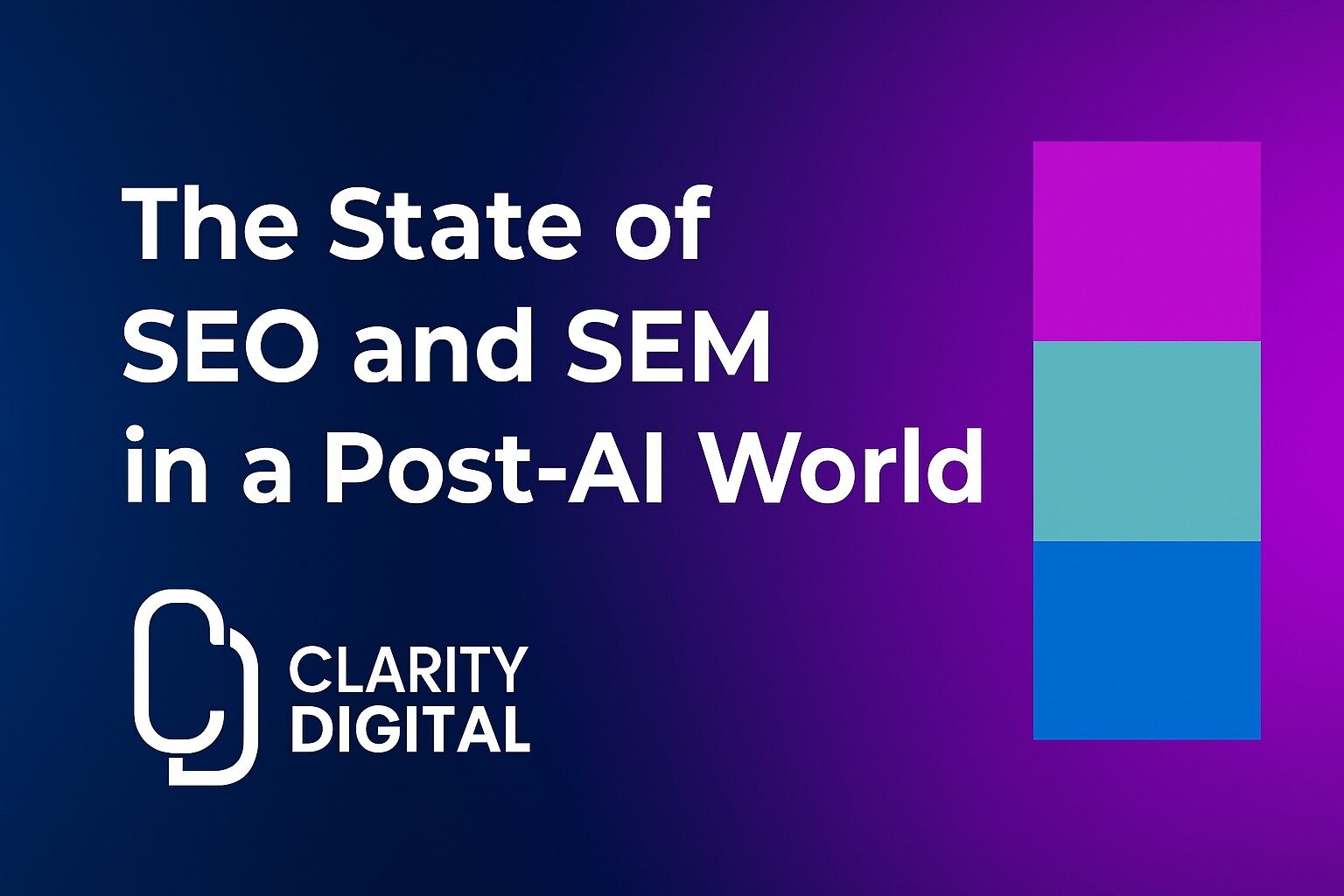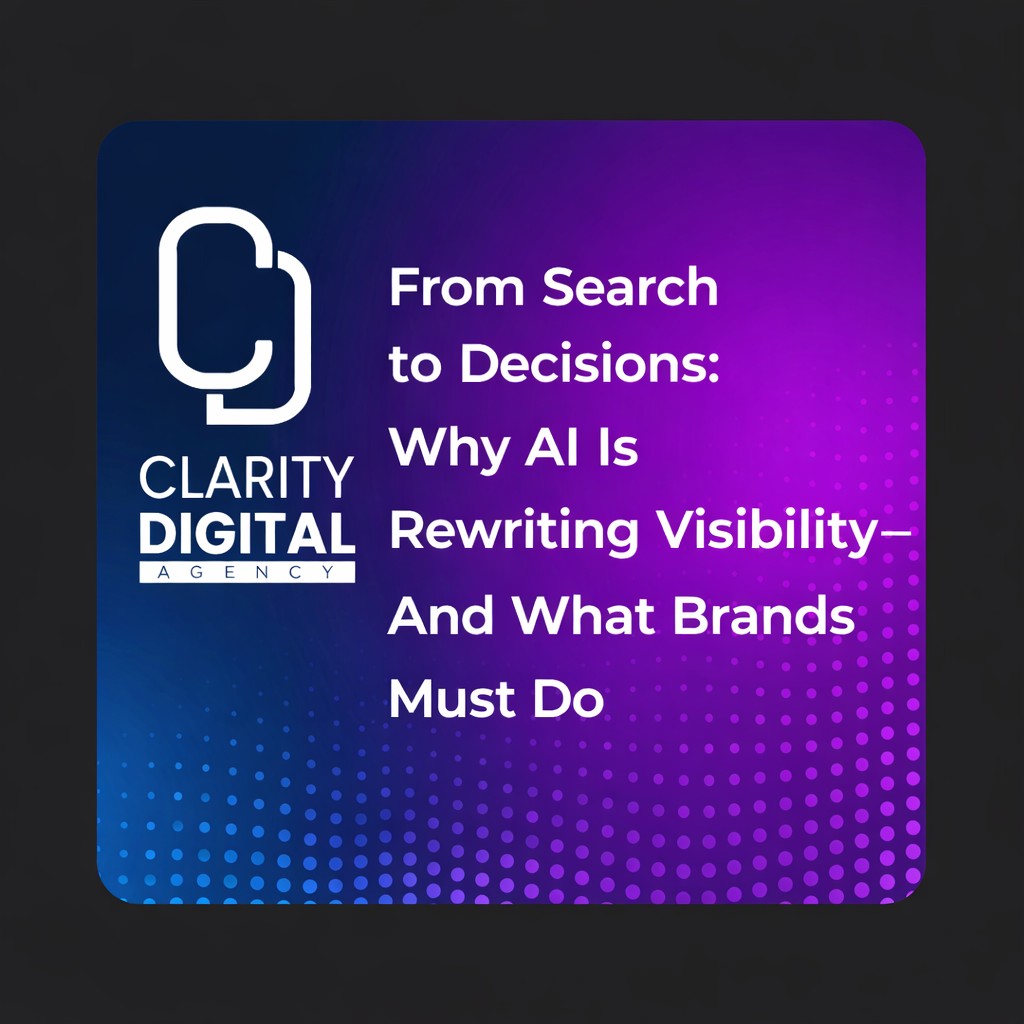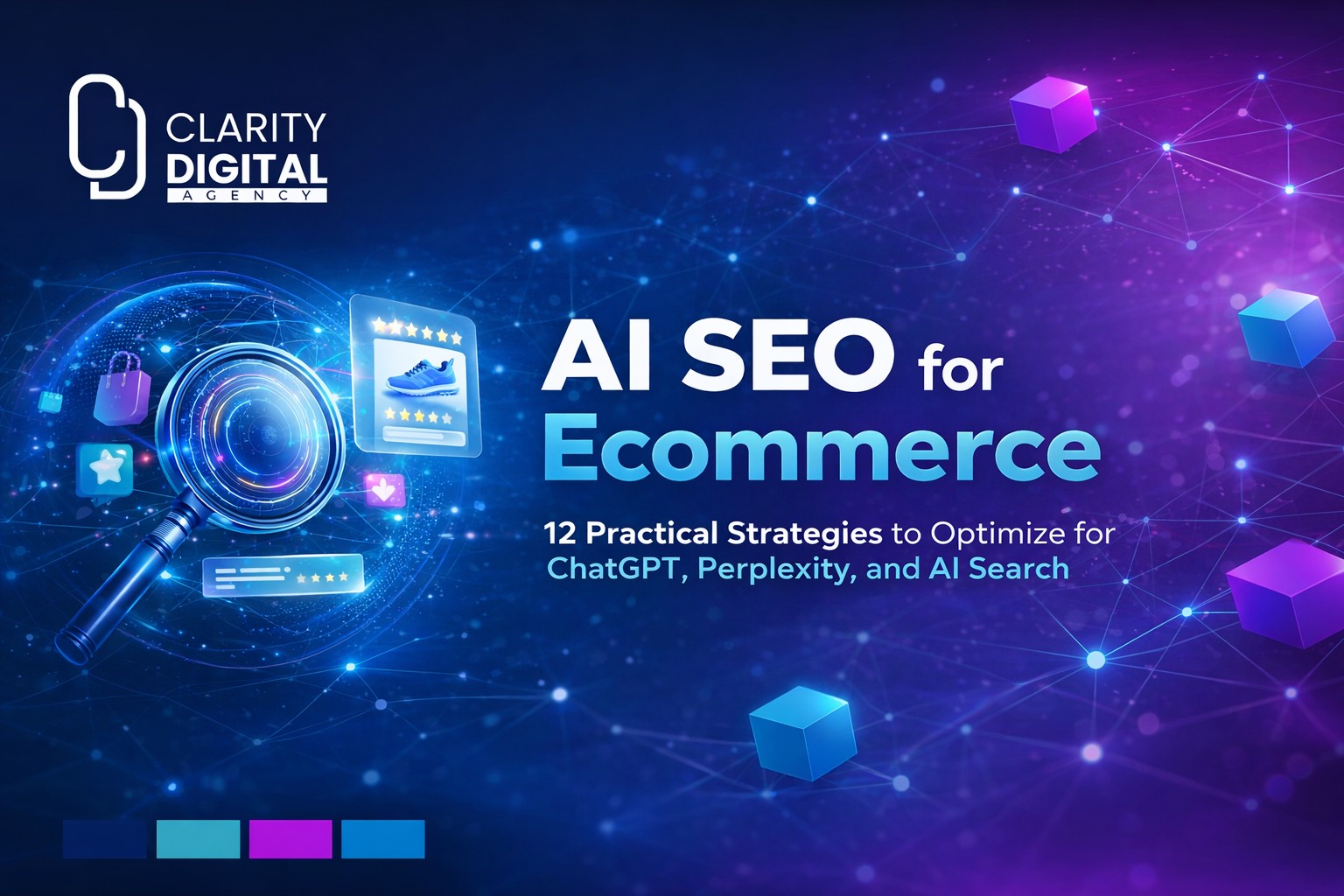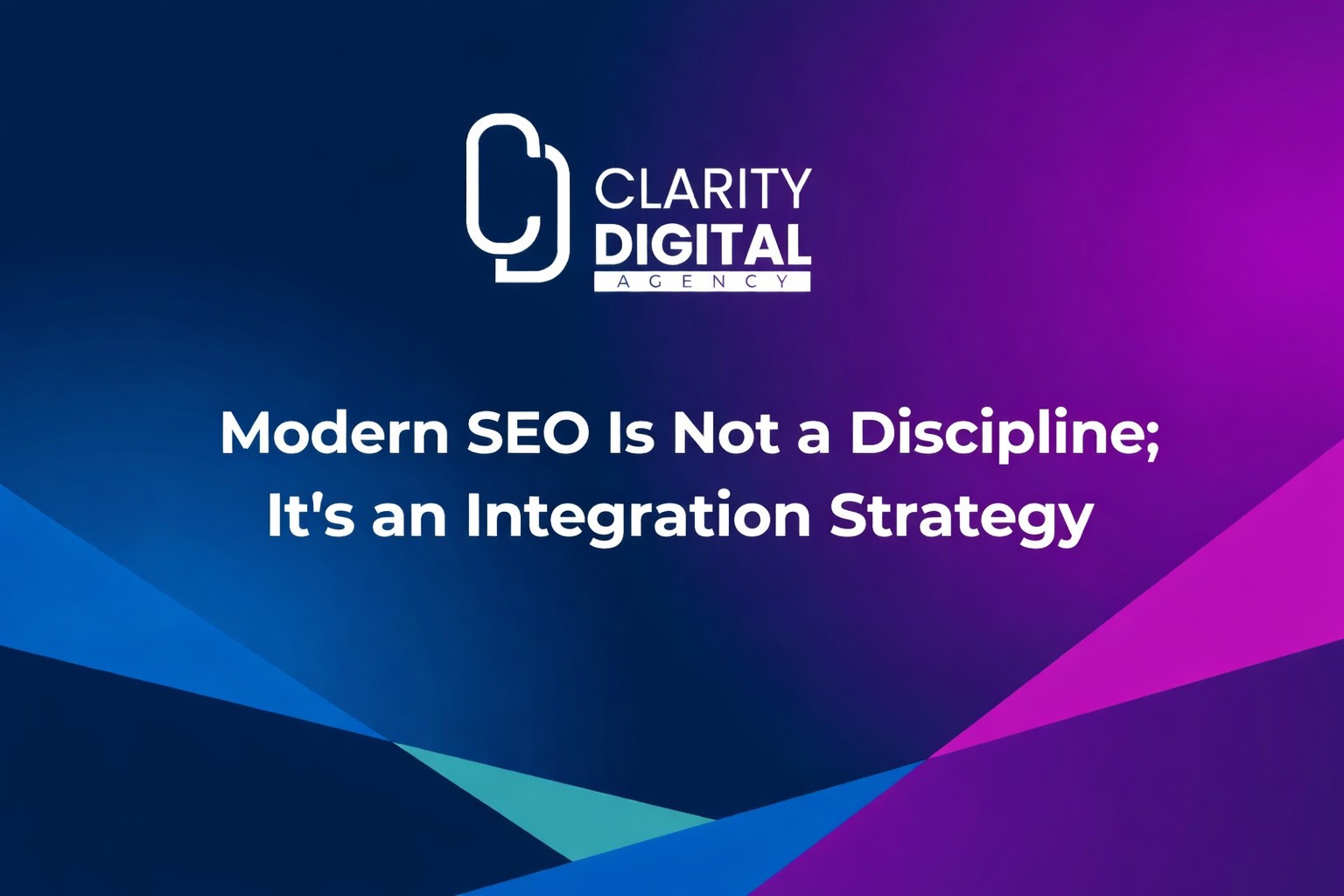Why Integration of SEO and SEM is No Longer Optional
The digital marketing landscape is always changing, but no force has sped up its development more than Artificial Intelligence. In this new, “post-AI” world, the old divisions between Search Engine Optimization (SEO) and Search Engine Marketing (SEM) are not just ineffective; they actually hinder your online presence and return on investment (ROI).
The time when SEO and SEM could work alone, or even worse, compete for the same keywords, is clearly over. We need a new way of thinking: a unified, AI-powered approach where these two strong disciplines work together effectively.
The Outdated Silo Mentality: A Recipe for Lost Opportunities
For years, SEO and SEM teams operated separately. Each team had its own budget, goals, and keyword lists. SEO professionals worked hard to boost organic rankings, while SEM specialists concentrated on paid ad campaigns. Both are important for visibility, but this division often caused:
Duplicative Efforts: Both teams might unknowingly target the same keywords, which creates internal competition and wastes resources. Picture two divisions of the same company bidding against each other in an auction; it’s unproductive and expensive.
Missed Synergies: Chances for one area to support the other were often ignored. A strong organic keyword could have been a great candidate for a focused SEM push, or an expensive but high-converting paid keyword might have suggested a valuable SEO content opportunity.
Incomplete Data Pictures: Without a complete view of search performance, it was hard to make well-informed decisions. Each team saw only a part of the puzzle, resulting in less effective strategies.
This silo mentality may have been manageable in an earlier digital age, but it is not sustainable with the rise of AI.
The Dawn of AI-Powered Integration: A New Imperative
The rise of advanced AI technologies has changed the search landscape. AI is no longer a distant idea; it is now a powerful force that requires better teamwork between SEO and SEM. Here’s why integrating AI is not just helpful, but essential. Digital marketers must act quickly.
Unparalleled Data Analysis and Predictive Power
AI excels at processing and understanding large datasets at speeds and scales that are impossible for humans. This ability helps AI algorithms spot complex patterns, new trends, and user intent with unmatched precision. For SEO and SEM, this means AI can:
Improved Personalization and Understanding User Intent: Modern AI models, especially large language models (LLMs) like Google’s Gemini and OpenAI’s ChatGPT, aim to grasp complex natural language and subtle user intent. This has significant effects on search.
Smarter Search Results: Search engines are getting better at providing direct answers and personalized experiences. They often summarize information right on the Search Engine Results Page (SERP) without requiring a click.
Conversational Search: The growth of voice search and conversational AI assistants means that users interact with search engines in more natural, question-based ways. AI helps to identify and refine these conversational queries, which traditional keyword research often misses.
Content Optimization for AI Use: AI tools can aid marketers in structuring content so that it is easy for AI to digest and summarize. This increases the chances of appearing in AI Overviews or featured snippets. Key areas to focus on include clarity, conciseness, and the smart use of structured data (schema markup).
Tangible Tactics for AI-Driven SEO and SEM Integration
So, how can SEO and SEM teams leverage AI to work together effectively? It starts with breaking down traditional barriers and embracing a shared, data-driven approach.
1. Unified Keyword Strategy Driven by AI Insights:
This is arguably the most critical area for integration. Instead of separate keyword lists, develop a single, comprehensive strategy that leverages AI to identify the optimal channel for each keyword.
Leveraging Google Ads Search Term Reports for SEO Opportunities
This is a goldmine often overlooked. Use AI to analyze your Google Ads search term reports.
Identify SEO Opportunities: Look for search terms that get clicks but have low conversion rates or have a Cost Per Acquisition (CPA) that is too high. These terms may not be profitable for immediate PPC conversion, but they show user interest and could be great candidates for SEO content. Use AI tools like ChatGPT or Gemini to analyze this data, find thematic clusters, and brainstorm content ideas around these terms. The AI can help you understand the user intent behind these “non-converting” paid queries. This insight will guide your SEO team in creating highly relevant and valuable organic content.
Identify SEM Exclusions for SEO: If a keyword ranks very well organically for SEO, such as in the top 1-3 positions, and regularly brings in strong organic traffic with good engagement, there may be less need to spend heavily on it in SEM. While some might argue for brand protection or expanding overall SERP presence, AI can help examine the cannibalization effect and suggest when to reduce paid bids to improve overall ROI. The same reasoning applies to keywords that already achieve a strong Return on Ad Spend (ROAS) in SEM. There is less urgency for SEO to pursue these keywords aggressively if the paid channel is efficiently capturing the value.
AI-Powered Keyword Research Tools: Use AI-powered keyword research tools that provide complete data on both organic and paid performance. These tools can spot keyword gaps, examine competitor strategies, and even forecast future keyword trends, giving a clear guide for both teams.
2. Aligned Content Strategy and Creation:
Content is the bridge between SEO and SEM. AI can help both teams collaborate on content that serves both organic ranking and paid ad effectiveness.
Content Ideation and Optimization: Use AI to brainstorm blog topics, article outlines, and landing page content that addresses identified keyword opportunities from both organic and paid insights. AI can help optimize content for readability, keyword density, and overall relevance for AI-driven search.
Ad Copy and Meta Description Generation: AI tools can quickly generate multiple variations of ad copy and meta descriptions, optimized for specific keywords and user intent. This ensures consistency in messaging across organic and paid listings, improving brand recognition and click-through rates.
Leveraging AI for Content Audits: AI can analyze existing content on your website to identify areas for improvement for both SEO (e.g., updating outdated information, adding structured data) and SEM (e.g., ensuring landing page content aligns with ad messaging).
3. Data Sharing and Unified Reporting:
Break down data silos by implementing shared dashboards and reporting mechanisms.
Consolidated Performance Metrics: Use AI-powered analytics platforms that integrate data from Google Analytics, Google Search Console, Google Ads, and other relevant platforms. This provides a single source of truth for overall search performance, allowing both teams to see the impact of their combined efforts.
AI for Anomaly Detection and Insights: AI can automatically flag unusual performance trends or sudden drops/spikes in traffic, helping teams quickly identify and address issues, whether they originate from an algorithm update (SEO) or a bidding change (SEM).
Cross-Functional Meetings: Implement regular meetings where SEO and SEM teams review unified performance reports, share insights, and plan integrated strategies.
Why AI Demands Immediate Integration of Your SEO & SEM Efforts
The message is clear: the digital landscape is not waiting. The rapid advancements in AI are not just incremental changes; they are fundamentally altering how users search and how search engines operate.
The future of digital marketing after AI is all about collaboration, intelligence, and smooth integration. The isolated approach to SEO and SEM is outdated.
By promoting communication, using AI for deeper insights, and connecting strategies, businesses can turn SEO and SEM into a strong partnership. This isn’t only about being efficient; it’s about achieving a new level of performance, expanding your reach, and ensuring your spot in the changing world of online search. Don’t let your teams work against each other; encourage them to come together, driven by the powerful impact of AI. The time to integrate is now.
Ready to make the most of your search strategy? Contact Clarity Digital for a free assessment call. Find out how integrated SEO and SEM, powered by AI, can transform your online presence.





